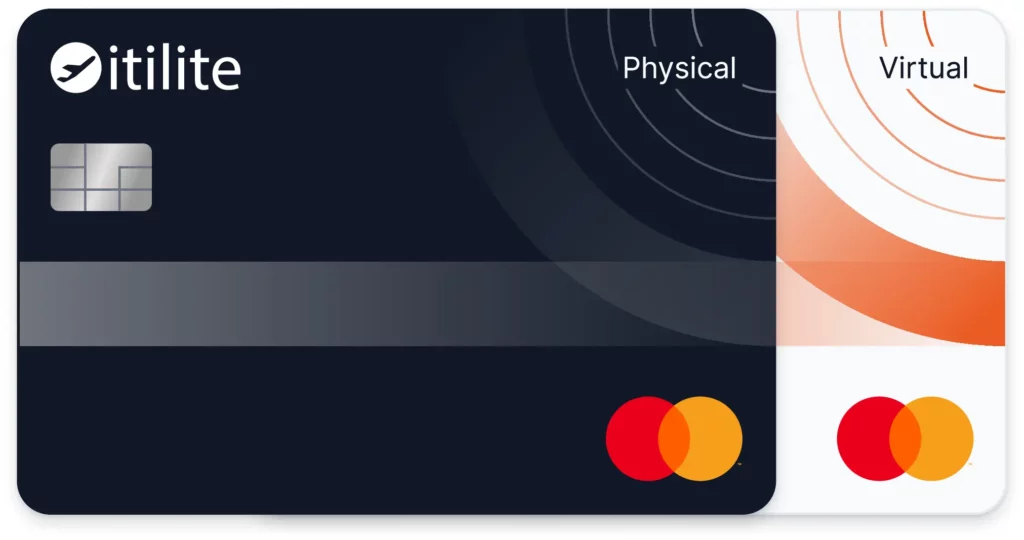
Gone are the days when traditional paper-based business cards were a means of doing business. They are being quickly replaced by their digital counterparts. With remote work, global collaboration, and sustainability goals becoming the norm, many organizations are shifting towards the virtual business card. These digital alternatives are not just a trend—they’re transforming how professionals connect, share information, and maintain brand consistency across teams.
Did you know that more than 80% of traditional business cards are discarded within a week? This waste of resources, combined with the rising demand for eco-friendly and tech-driven alternatives, is prompting companies to adopt business virtual cards. They are choosing cards that are dynamic, versatile, and cost-effective.
In this comprehensive blog, we’ll explore the top reasons why businesses are transitioning to business virtual cards, their key benefits, and how they’re redefining professional networking in the modern era.
What is a Virtual Business Card?
A virtual business card is a digital version of a traditional paper business card that allows professionals to share their contact information electronically. Unlike physical cards, business cards are dynamic, customizable, and accessible across devices. They typically include standard details like name, job title, company, phone number, email address, and website. They can also feature interactive elements such as clickable links, social media profiles, videos, and QR codes.
These cards can be shared instantly via email, text, NFC (near-field communication), or by scanning a QR code—making them ideal for both in-person and virtual interactions. Since they live online, they can be updated in real-time without the need to reprint or redistribute new versions. Many platforms also allow users to track how often their cards are viewed or clicked, offering insights into engagement.
A virtual business card is not just a convenient way to exchange information, but it reflects a modern, eco-friendly, and tech-forward approach to professional networking. Companies use them to ensure brand consistency across teams, reduce printing costs, and make connecting seamless in a digital-first world.
Reasons Companies Are Switching to Virtual Business Cards
There are many reasons why companies are switching from physician business cards to virtual business cards. Mentioned below are some of the reasons why business virtual cards are being used:
1. Rising Demand for Sustainability and Eco-Conscious Practices
One of the major driving factors behind the switch to virtual business cards is sustainability. Traditional business cards contribute to paper waste and carbon emissions from printing and transportation. According to the EPA, paper products make up over 25% of landfill waste.
By adopting business virtual cards, companies demonstrate environmental responsibility while aligning with corporate social responsibility (CSR) goals. Digital cards are a zero-waste solution that can significantly reduce a company’s carbon footprint and appeal to eco-conscious clients, partners, and employees.
2. Cost Savings on Printing and Logistics
Printing thousands of business cards, especially for large organizations with high employee turnover, can be costly. Expenses include design, printing, shipping, and frequent updates due to role changes or rebranding. Moreover, cards often become obsolete quickly, leading to wasted inventory.
With a business virtual card, these costs are eliminated. Updates can be made in real-time, allowing companies to instantly reflect promotions, contact changes, or rebranding efforts. Organizations can also distribute cards globally at zero logistical cost, making them an economical choice for growing enterprises.
3. Ease of Sharing in Remote and Hybrid Work Environments
With the rise of remote and hybrid work models, physical interactions have become less frequent. Whether you’re joining a Zoom call, attending a virtual conference, or networking on LinkedIn, a virtual business card enables seamless sharing of contact information across digital platforms.
Professionals can share their digital card through email signatures, social media bios, NFC technology, or QR codes. This accessibility enhances networking opportunities regardless of geography and makes connecting during virtual meetings more efficient.
4. Real-Time Updates and Contact Management
One of the biggest limitations of physical business cards is their static nature. Once printed, any change in your phone number, job title, or email address requires a reprint.
With a business virtual card, updates are instantaneous and automatic. When a change is made on the backend, all future interactions reflect the updated version. This eliminates confusion, broken links, or outdated contact information, ensuring prospects and clients always have accurate details.
Some advanced platforms also allow two-way contact management. When someone saves your virtual card, you can receive a notification and store their contact information in a CRM or address book, making follow-up smoother.
4. Analytics and Engagement Tracking
Traditional business cards offer no insight into recipient behavior. You hand over your card and hope the other person follows up.
Virtual business cards, on the other hand, can track engagement and provide valuable insights. You can monitor:
- How many times your card was viewed
- Which links were clicked
- Time spent on embedded videos
Downloads or shares of attached files
These analytics empower sales and marketing teams to measure outreach effectiveness, prioritize leads, and tailor follow-up strategies accordingly.
5. Improved Security and Compliance
Sharing contact details electronically might raise concerns around privacy and data protection. Fortunately, modern business virtual card platforms often come equipped with enterprise-grade security features such as:
- End-to-end encryption
- Two-factor authentication
- GDPR and CCPA compliance
- Role-based access control
- Expiration or limited-access links
This makes them more secure than paper cards, which can be lost, copied, or misused. Businesses can rest assured knowing that sensitive contact data is protected and in line with compliance regulations.
6. Seamless Integration with Digital Tools
Companies today use a variety of digital tools—from CRMs and email platforms to Slack and Teams. Most virtual business card solutions integrate smoothly with these systems, streamlining the entire contact-sharing and follow-up process.
You can auto-save contacts to Salesforce, trigger workflows in HubSpot, sync meetings with Google Calendar, or even automate follow-up emails—all from a single digital card interaction. These integrations reduce manual data entry, improve productivity, and create better user experiences.
7. Scalability for Growing Companies
Startups and fast-growing businesses often deal with rapid changes—new hires, evolving roles, rebrands, or global expansion. Traditional business cards simply can’t keep up.
A virtual card is easily scalable. You can issue, update, or revoke digital cards for any number of employees at any time. New joiners can have their cards ready on day one, while departing employees’ cards can be deactivated immediately, ensuring tight control and compliance.
This agility is especially useful for companies in growth mode that need quick turnarounds and consistent branding.
8. Better ROI Compared to Physical Cards
Although the upfront cost of implementing a virtual card platform might seem higher than printing paper cards, the long-term ROI is significantly better.
You save on printing, reprints, shipping, and lost opportunities from outdated information. More importantly, you gain actionable insights, increase engagement, and project a modern image of which contributes to business growth.
Add to that the environmental impact and brand value, and the investment in business virtual cards quickly pays off.
Calculate your savings now!
The Future Is Digital and So Is Your Virtual Business Card
The shift toward digital transformation is undeniable. As organizations continue to adopt tools that are efficient, eco-friendly, and scalable, virtual business cards are becoming an essential part of the modern professional toolkit.
Experience the absolute convenience of seamless transactions with the itilite virtual card solution. itilite doesn’t limit the number of virtual cards you can request for your team, offering unlimited flexibility to suit your business’s specific needs.
Seamlessly integrate them with the itilite mobile app for pay-at-hotel bookings. Alternatively, you can integrate virtual cards to apply for effortless tap-and-pay transactions, simplifying the entire process.
To know more about itilite cards, book a free demo now!








